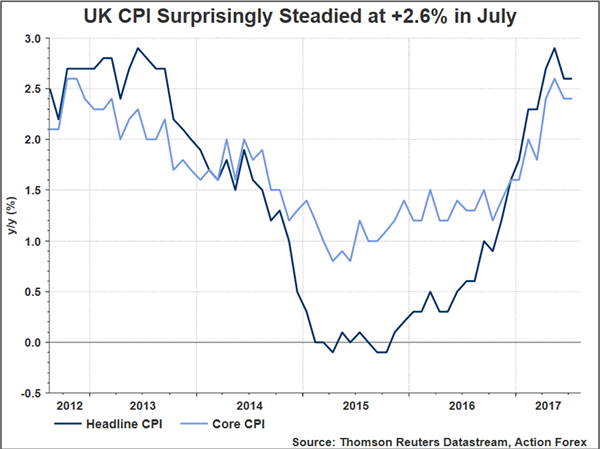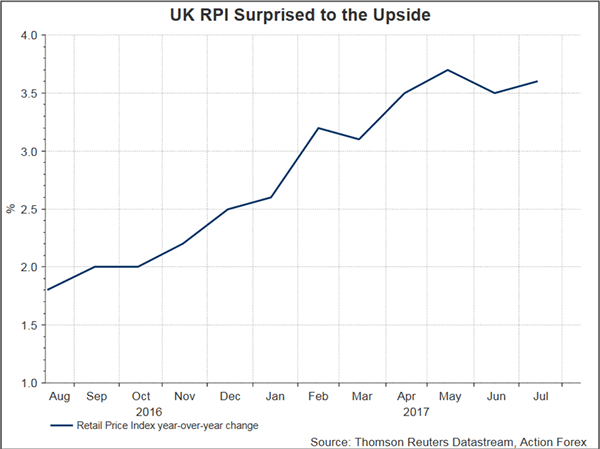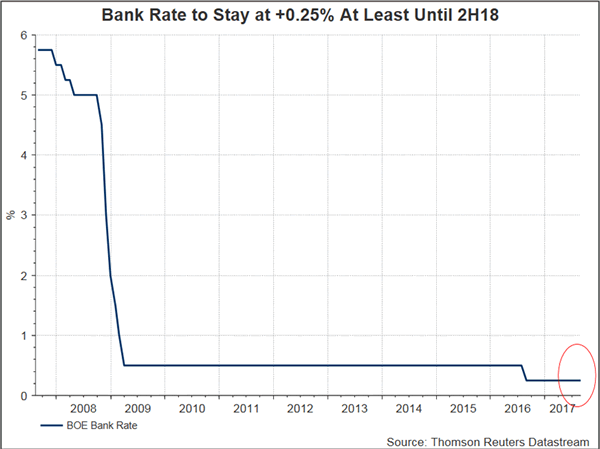Headline CPI in the UK surprisingly stayed unchanged at +2.6% y/y in July, compared with consensus of a renewed pick up to +2.7%. From a month ago, inflation contracted -0.1%, after a flat reading in June. Re-designated by the Statistics Authority on July 31, the consumer price index including owner occupiers’ housing (CPIH) steadied at +2.6%. The price of motor fuel continued to fall and contributed to the biggest downward change from June to July. Upward contributions came from a range of goods and services, including clothing, household goods, gas and electricity, and food and non-alcoholic beverages. Core CPI stayed unchanged at +2.4%, missing market expectation of a rise to +2.5%.

Also surprising the market was the improvement in the retail price index (RPI) which accelerated to +3.6% y/y in July, from +3.5% a month ago. This beat consensus of +3.5%. From a month ago RPI stayed unchanged at +0.2% but exceeded expectations of +0.1%. One point to note for the upside surprise in RPI compared with the disappointment in CPIH was air fares, which were given a lower weight in CPIH this year, than in 2016, while they received higher weight in RPI this year. As such, air fares weighed on the CPIH but lifted RPI, on year-over-year basis.

British pound slumped to a one-month of 1.2851 against US dollar and extended weakness to a fresh 10-month low against the euro. The key reason for the selloff was that hopes of a BOE rate hike are further diminished. At the August BOE meeting two weeks ago, BOE turned dovish after a short-lived hawkish boost by Governor Mark Carney in late June. Policymakers voted 6-2 to leave the interest rate unchanged at 0.25% in August (compared with 5-3 in July) with the newcomer Silvana Tenreyo supporting to maintain the status quo. Policymakers acknowledged the overshoot of inflation above the +25 target and projected it "to remain above the MPC’s target throughout the forecast period". However, they judged that "the overshoot reflects entirely the effects of the referendum-related falls in sterling". We believe that the weaker-than-expected inflation in July would give the central bank a relief and maintain the policy rate at historical low level until the second half next year.

